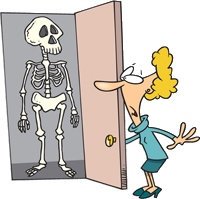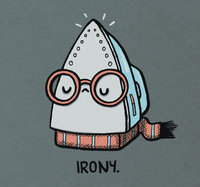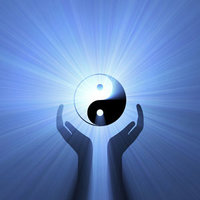Books

Japanese Books
47 Ways to Avoid Being Killed by Your Doctor
By Dr. Makoto Kondo
Published: Shinsho

How to live a long healthy life without drugs
Those drugs and treatments can shorten lives
Number 1 Best Seller!
Top of Page

Read and Stop Psychotropic Drugs
By Dr. Rokuro Hama
Independent book

Not Recovering from Your Illness?
It Could Be Due to The Drugs You Are Taking…
Top of Page
The Dark Side of Mental Health
By Mitsunobu Sato
Published: Kodansha Publishing Company

WARNING
This is not fiction
Some alarming truths about the dark side of psychiatrists
Top of Page
By Hiroshi Segi
Published: Kodansha Publishing Company
Exposing the underbelly of the Supreme Court and its central administration.
Shocking confessions from a former elite judge.
Abandon all hope, ye who enter Japanese courts.
Conspiracy over “legal system reform” by troubled legal profession.

Introduction to Contents
What impression comes to mind when you hear the words courthouse or judge? For your average civilian, one might think they can be a little impersonal but fair, unbiased and upright.
A distinguished judge does things by the book, and though rigid and formal, they are sincere and rational; someone who is not preoccupied with career advancement, but even if they were, a case presided over by such a judge would still be basically fair and credible, wouldn’t it?
However, although unfortunate, the reality in Japan is that most courts and judges are probably nothing like this at all. Judges that civilians may expect to rely on, such as those mentioned above, are nowadays the minority and that percentage continues to decline.
For this minority group of upright judges, there is basically no initiative for them to advance to the upper ranks of the court system. In recent years, executive rankings at the Supreme Court are increasing being held by judges who exercise censorship (domination and control) whilst the liberal and upright minority of judges are gradually being ousted.
A judge of 33 years and distinguished author and scholar uncovers the hidden truths about the corruption in the Japanese court system. Preferential favours for career advancement, politics and jockeying for power, cover-ups, sexual harassment and the list goes on. When seeking justice, perhaps the only thing we can really expect is nothing more than ‘despair’.
Top of Page
English Books
One Woman's Triumph and Fight for Change
By Joan Gadsby
Paperback
January 1, 2005

In 1966, Joan Gadsby's four-year-old son died of a brain tumour. In response, her trusted family physician prescribed a “chemical cocktail” of tranquilizers, sleeping pills and anti-depressants - an act that initiated Gadsby's slow descent into an abyss of unrecognized addiction.
Gadsby has emerged from her addiction to become a tireless advocate for systematic change and accountability in the area of prescribed sedative/hypnotic drugs. She has interviewed thousands - from consumers to doctors to pharmaceutical representatives and government officials as she conducted extensive international research - in her quest to expose the shocking truth of the depth and breadth of addiction by prescription which affects hundreds of thousands of men and women worldwide.
Top of Page
The Word’s Most Difficult Addiction Problem
By E. Robert Mercer
Paperback

The most pervasive drug problem in the world is not heroin, not crack, not crystal meth, not pot, not any of the illicit drugs. Combined with the brutal nature of its addiction and the time and difficulty involved in withdrawing, a legal classification of drugs is by far the worst. Given their legal status and widespread use, benzodiazepines are secretly taking away the lives of Americans and people in other western cultures as we increasingly turn to pills to heal us. Commonly known as tranquillizers, the effects of these highly addictive prescription drugs are ghastly. Withdrawing from them can be extraordinarily difficult, far beyond description. This is the true story of one man’s journey through dozens of relentless, horrific withdrawal symptoms to renewed health. These drugs are worse than heroin.
Top of Page
How And Why To Stop Taking Psychiatric Medications
By M.D. Peter Breggin, M.D. and David Cohen, Ph.D.
Hardcover

Well over ten million Americans are prescribed a psychiatric medication annually, for symptoms as varied as headache and insomnia to depression and various psychiatric disorders. Unbelievably, many of these drugs have not been formally tested to treat the problems for which they have been prescribed. Scientifically documenting the need for an end to this vicious cycle of inadequate approval, mis-medication, and irresponsible inattention to adverse side effects, Breggin and Cohen advocate compassionate and non-toxic therapies, and offer readers a roadmap for sensible, safe withdrawal from psychiatric drugs.Whether the drug is a sleeping pill, tranquilizer, stimulant, antidepressant, mood stabilizer, or antipsychotic, Your Drug May Be Your Problem reveals its documented withdrawal symptoms, demonstrating what many doctors don’t know, understand, or consider: withdrawal symptoms often mimic the symptoms for which a person has been medicated in the first place, a fact that frequently prompts doctors to mistakenly re-medicate their patients at even higher doses. Armed with this essential background information, readers will then be able to choose for themselves when and how to withdraw from psychiatric drugs. Groundbreaking and empowering, Your Drug May Be Your Problem offers readers what they have long sought—a medically and psychologically sound program for freeing themselves from psychiatric drugs, emphasizing throughout the importance for patients to keep control over the withdrawal process.
Top of Page
Overcoming Anxiety Without Tranquilizers
By Edward H. Drummond, M.D.
November 1, 1998
Paperback

Valium. Atvian. Xanax. These benzodiapezines or “benzos” are among the most routinely prescribed medications in our society, used to treat chronic anxiety in millions of people. But these drugs can actually prolong and aggravate anxiety, causing individuals to postpone dealing with core problems and to increasingly rely on addictive medication with extremely debilitating effects. Of the more than 30 million people who take these drugs, more than four million are addicted. Dr. Edward H. Drummond offers hope with a revolutionary program for overcoming chronic anxiety without the use of tranquilizers. His approach flies in the face of established practices, particularly at a time when health care programs offer dwindling support for psychotherapy, preferring the cheaper course of having patients medicate themselves. Certain to inspire controversy, Benzo Blues is the work of a visionary author out to challenge the medical establishment. Its publication will be greeted with enormous interest by the millions of people affected by these powerful drugs, all of whom will find a new way of dealing with a lifelong problem.
Top of Page
By S.K. Torma
Paperback

Some people say that heroin is the worst drug in the world. Thankfully, they haven’t met Mr. Benzodiazepine. If they ever had the misfortune of meeting him, they would surely change their mind. When you open this book, you will step into a world of “Benzo Hell” caused by Xanax and her sisters. May God bring you back from these pages of a fiery “prescription drug” inferno: mentally sane and physically intact.
Reviews:
“Heartrending...” Professor C. Heather Ashton, DM, FRCP
“A gripping and emotional read...” Ross JM, the Trap Forums Admin
Top of Page

The primary language of this website is English. Japanese appears as translations only (except for some original court documents).
These translations have been done by many different translators including me. Therefore, there are differences in quality and styles.
Please understand that I am not native Japanese and subsequently there are parts that may sound unnatural in Japanese.

It seems the truths about the potential dangers of benzodiazepines are slowly coming out but with so many cases of prescription dependency worldwide there is clearly a long way to go.
Also, in my experience it appears as if dependency to prescription drugs leans toward a subject of taboo – almost as if society is succumbing to it.
However, is keeping these problems locked up in the closet going to help anyone or change anything?
At first it was difficult sharing my case and story online because it necessitated disclosing personal information, however, I felt the need to come out and help raise awareness outweighed this…
What are benzos for again?

The only time I’ve ever needed to visit a psychologist in my life was AFTER (wrongfully) being prescribed benzodiazepines…
I went from being barely able to walk when I was on benzodiazepines to being able to squat 180kgs following abstinence and rehabilitation.

The Ashton Manual contains expert advice on benzodiazepines and how to withdrawal written by world renowned expert Prof. Heather Ashton.

The withdrawal schedules provided in the manual are only intended as "general guides". Each person's experience of withdrawal is unique and the course of withdrawal depends on many factors.
As someone who has experienced both doctor induced benzo dependency and the effects of the 3-11 disaster, I immediately became concerned about the overprescribing of prescription drugs to the many thousands of people in the disaster areas.

As it happened, I was writing my Supreme Court appeal in the midst of the disaster, so I took this opportunity to try and raise the alarm by including the following passage in my closing comments…
Throughout this entire ordeal, I came to realize the importance of “Balance”.

As pressing as the court deadlines were and as demanding as the case was, without maintaining a balance in life including rest, recreation, work, socializing, diet, sleep etc. it would have been impossible to sustain.
However, it was always a razor edge fine line between making progress and maintaining health and balance.
Subsequently, it took a lot of skill and adapting.
Cause for Alarm!

Consider this extract from:
A Review of David Healy's “The Psycho-pharmacologists III” by Professor Heather Ashton
How is it that the pharmaceutical industry has come to dominate the field?
Healy points out that drug companies “are now not simply confined to finding drugs for diseases. They have the power to all but find diseases to suit the drugs they have”.
Pierre Simon (Sanofi Pharmaceuticals) remarks: “In the beginning the pharmaceutical industry was run by chemists.
This was not so bad... Now most of them are run by people with MBAs... people who could be the chief executive of Renault, Volvo or anything.
They don't know anything about drugs.” The problem comes when a chemist presents an interesting drug to the financial analyst, who asks: “What is the market?”
The chemist has to decide for what indication the drug will be developed. If the indication is not there, it must be created.
I included the quote in the top left corner of this site because many people thought I was crazy for pursuing my case.

However, my philosophy is we can either choose to do something, or choose to do nothing. The former gives way to hope for many people. The latter…? Whichever way, it’s all in our hands…







